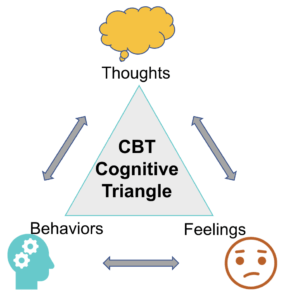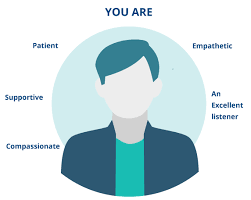Contents
Who Is A Therapist?

A therapist is a professional who provides mental health treatment to individuals, couples, families, or groups. Many therapists have doctoral degrees in clinical psychology, psychiatry, clinical social work, counseling, or some other type of therapy. They may have certificates to practice as psychotherapists or psychiatric mental-health counselors. Some therapists are trained specifically in family therapy or child psychology. Others are trained in how to provide occupational therapy for people with disabilities. But all therapists are trained in having conversations with patients about their feelings and thoughts.
Therapists are also available at schools for students who need help managing their emotions. Mental-health professionals diagnose and treat people who have problems with moods or their thinking. The therapist is trained to listen closely to the problems the patient describes. Then, by asking questions or using different therapy techniques, the therapist helps the person understand his or her feelings and behavior. A therapist usually works with a patient for at least several months. Sometimes people go back to their therapists many times throughout their lives if they need to work on their problems or get more education about how they can manage their lives.
How To Become A Therapist?
People often think that all they have to do to become a therapist is go to school and get a degree. However, this is not the case; therapists must be specifically trained in order to practice psychotherapy. There are specific steps that one must take in order to become a therapist. These include completing an undergraduate degree, receiving training during graduate school, and acquiring a license.
Get Degree In Psychology/Therapy

One must first complete an undergraduate degree in order to begin training as a therapist. Most often this degree will be psychology because the majority of training programs are psychology programs. However, other degrees can include social work or even English literature. In addition to completing a bachelor’s degree, one may choose to become certified.
Choose The Age Group
The next step would be to decide whether you’re more comfortable working with adults or children. The age group that you choose will affect how you will get an education. As well as what certifications you need when you graduate. You will find that most people who want to become a therapist opt for working with children and adolescents at first. But eventually, move on to other populations later in life.
Whatever age group you choose, make sure that you complete your education with the correct credentials. Most therapists need to be licensed in order to practice, and different states will require different certifications for licensure.
Practice
Once you’ve completed your advanced education training program, get comfortable with working as an intern or assistant therapist under the direction of a licensed therapist. This will give you a chance to learn different treatment techniques under the supervision of someone who has experience with providing therapy to others. And will also help you decide which type of medicine is right for your schedule and interests. The process of becoming a therapist is not as easy as one might think.
In addition, therapists need to know how to use therapeutic techniques such as cognitive-behavioral therapy (CBT) or talk therapy in order to effectively help their clients. Therapy skills, which include the ability to work within certain boundaries and maintain proper confidentiality are also necessary for any therapist wishing to succeed in this field. Furthermore, therapists should have strong communication skills both verbally and nonverbally with their clients so that they can successfully help them overcome their issues.
Get License
Therapists need to be trained and licensed in order to practice psychotherapy. Therapists must complete an undergraduate degree, graduate school, and receive a license before they can practice therapy with patients.
You can begin working as an independent therapist when you’ve finished your training program and accumulated the necessary licensure requirements. Once you have a license in your state, take some time to develop a specialty such as family therapy or forensic work before moving on to open up your own private practice. While this work does require a lot of patience and dedication in order for things to go smoothly. It can be very rewarding whenever you make a positive impact on people’s lives.
Role Of A Therapist
A therapist’s role is to help patients find solutions so they feel better and have a greater ability to cope with their daily lives. Therapists help people understand the things that make them happy, sad, angry, frustrated, excited, jealous, and anxious. They try to help patients solve their concerns in a healthy way before they can cause problems in a person’s life or relationships. Therapists often work with people with serious emotional or mental health issues, such as depression or schizophrenia. These kinds of therapists are sometimes called clinical psychologists, psychiatrists, psychiatric nurse practitioners, counselors, clinical social workers, and family therapists.
Some therapists work with people who have problems in their relationships or at their jobs. These therapists may be famous as marriage and family counselors, occupational therapists, and life coaches.
Types Of Therapy
So many people want to know how to become a therapist. The first step would be to determine what sort of therapy you’re interested in. Make sure you work through your training and education with a licensed therapist, as this will help them determine whether or not you have the skills necessary for the job. After completing your training, make sure that your degree is accredited and explore possible employment options for therapists.
You will find that there are several different types of therapy to choose from. Here is a brief look at the various forms of therapy and their purposes:
Cognitive Behavioral Therapy (CBT)

This type of therapy was developed specifically for patients who suffer from depression, anxiety disorders, and phobias. CBT helps them cope with overwhelming emotions while simultaneously teaching them how to seek out rewarding behaviors in order to get back on track.
Dialectical Behavior Therapy (DBT)
DBT is designed specifically for women who have been diagnosed with Borderline Personality Disorder or other emotional disorders causing them great distress. DBT uses mindfulness techniques, cognitive-behavioral strategies emotional regulation mechanisms in order to help women learn how to better cope with their emotions and avoid engaging in negative behaviors.
Psychoanalytic Therapy
This form of therapy is based on the belief that behavior is largely based on past experiences, and that those experiences can have a very strong influence on a person’s future actions. Psychologists who use this approach often work with patients for several years as they explore their early childhood experiences as well as other important events from adolescence or adulthood. In addition, they may look at how current conflicts are being influenced by the patient’s early life experiences.
Self-Help Groups
Many people turn to self-help groups when they want to overcome certain addictions such as drugs or alcohol. These organizations typically provide ongoing support to encourage addicts not to turn to drugs and alcohol ever again.
Systemic Therapy

This form of therapy is usually carried out in groups. And attempts to help patients understand the root causes of their conflicts with others. These therapists work on helping people resolve current conflicts while learning how they can improve relationships in the future.
If you’re unsure about what type of therapy might work best for you, consider volunteering at a local hospital or nursing home. You can also take classes related to psychology while still in school. So that you get an idea of whether or not this profession is right for you. The more information that you have about each form of therapy, the better prepared you’ll be when it comes time to choose which one suits your needs best.
The Requirements For Becoming A Therapist

In order to become a therapist, you will need a four-year bachelor’s degree in psychology, social work, or a related field. In addition, you should also have a graduate degree in the subjects that you want to specialize in. The type of training that you have will depend on the population that you plan to work with.
If you want to work with children and adolescents. Then you may opt for an education program that is specifically geared toward that age group. If your goal is to work with families and couples, then you might look for an education program that caters to those populations specifically. Forensic therapists must complete an undergraduate program in psychology. And then go on to take courses and earn a graduate degree in forensic psychology and criminal justice.
You will need to get a license by the state in which you plan to practice. The licensing requirements vary by profession and may require different tests, training programs, and internship hours depending on where you decide to work. People who want to become a therapist must also complete continuing education courses in order to maintain their licensure status.
Skills Needed To Become A Therapist

One of the most important skills a therapist needs is empathy. Practicing empathy means being able to understand what another person is experiencing. This is not an easy skill for some people, especially if they have been through a hard time or trauma. But it’s a fundamental skill for any therapist.
A strong therapeutic alliance between patients and therapists specifically requires empathy, as do many other therapeutic approaches. In cognitive-behavioral therapy (CBT), the therapist must be able to understand their patients’ thoughts. And how these thoughts affect their emotions and behaviors.
Attentive
In psychodynamic psychotherapy, therapists need to have a solid understanding of their patients’ psychological experiences, including past traumas that might still influence them today. And in other forms of talk or mental health therapy. A therapist must be especially attentive to non-verbal cues from a patient.
Attention to detail is another important skill for therapists. Therapists listen closely to what a patient says as well as any underlying messages the patient might not be aware of themselves. Therapists also ask questions based on those observations and take immediate action to change problematic behaviors displayed by patients.
Comfortable With Silence
A therapist must also be very comfortable with silence. Therapists may sit in silence with a patient immediately following periods of meaningful dialogue. This can be uncomfortable, but it’s necessary for allowing patients to fully process their feelings and thoughts instead of continuing to talk about them.
Self-awareness
Therapists are also highly self-aware. They must have a good understanding of the emotions they might be feeling during therapy sessions. So they can recognize them as separate from the emotions patients are experiencing. Therapists must also learn how to manage these emotions. So they don’t become part of therapy itself or interfere with therapists’ ability to provide effective treatment.
Ability To Take Criticism
One skill that may not immediately come to mind is being able to take criticism well. Especially when it comes from a patient who doesn’t necessarily like what the therapist has done or said. That’s because taking criticism isn’t easy for anyone. But therapists must be able to take this criticism in stride. So they can continue to grow as a therapist and provide better treatment for patients.
Positive Attitude

Finally, there is one other important skill that sets therapists apart from other people: their positive energy and attitude toward others. Many people think of empathy as the ability to put yourself in someone else’s shoes and imagine how they feel.
How Much Money Does A Therapist Make?
Therapist salaries vary from state to state, but the median therapist salary nationwide is approximately $44,960. In 2012, Therapists made a median salary of $43,500 with half making more and half less. In the same year Psychiatrists earned a median salary of $178,000, Psychologists made a median salary of $68,000 and Marriage & Family Therapists made a median salary of $50,000.
The employment outlook for therapists is on average with 23% growth over the next decade. Many therapists work part-time only so they can have time for their own personal life outside of practicing therapy. Some states even allow you to get your license as a therapist online from your home at your convenience without having to go through an extensive program in person. This way you can work as much or as little as you want while still being able to practice mental health counseling from wherever you want.
If you are looking into how to become a therapist. The good news is that there are many different options available. Today’s therapists can work in various settings including private practice, hospitals, and schools. They also have the option of working on their own or with others as part of an organization. So they can find what works best for them. If you want more information about becoming a mental health counselor online, contact us today. We would be happy to answer all your questions and help walk you through our program offerings.
Conclusion
If you are seeking therapy or treatment for overcoming negativity in your life. Mantra Care is a suitable healthcare organization.
For more information, please contact MantraCare. Online therapists are increasingly important in today’s world because they provide a convenient and accessible way for people to receive mental health support and treatment. Visit MantraCare If you are searching for “therapist near me”. Book a trial Online therapy session


